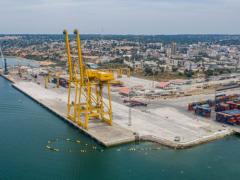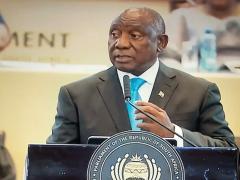Cybercrime is one of the top risk factors likely to jeopardise Africa’s economy - especially as the continent is transitioning to e-commerce under the African Continental Free Trade Area (AfCFTA).
That’s according to panellists who participated in a discussion themed “Dangers/Risks of Cybercrime to E-Commerce in Africa”, hosted by the Economic Commission for Africa (ECA) earlier this month.
They agreed that cybercrime could impede a thriving digital economy in Africa and required international, regional, private sector cooperation.
“Many domestic regulations on the internet are being enforced without paying due consideration to the global and universal nature of cyberspace, cybersecurity and its relevance for e-commerce,” said Almoustapha Cisse, chief of ECA’s information and communications technology services section, adding that cybercrime had become a big issue in the world because of emerging technology and high internet penetration on the continent.
He said African governments should accept the standard cyber norms and international laws for responsible state behaviour in cyberspace.
Adding her voice to calls for a focus on cyber governance, Nnenna Ifeanyi-Ajufo, senior lecturer at the School of Law, Swansea University, said cyber governance and e-commerce played a critical role in ensuring cybersecurity, and that the interface between cyber governance, cybersecurity and economic viability was one of the most complex policy challenges in the current digital economy in Africa.
“It is important that African countries ratify the Malabo convention on cybersecurity and personal data protection to fight the threats of cybersecurity,” she added.
The Malabo convention, she noted, was one of the most elaborate conventions in the world on cybersecurity. So far, only 10 African countries have ratified it – and for it to come into force, it needs ratification by at least 16.
“To implement internet security, a delicate balance needs to be struck between security held by the governments, companies and internet users,” she said.













